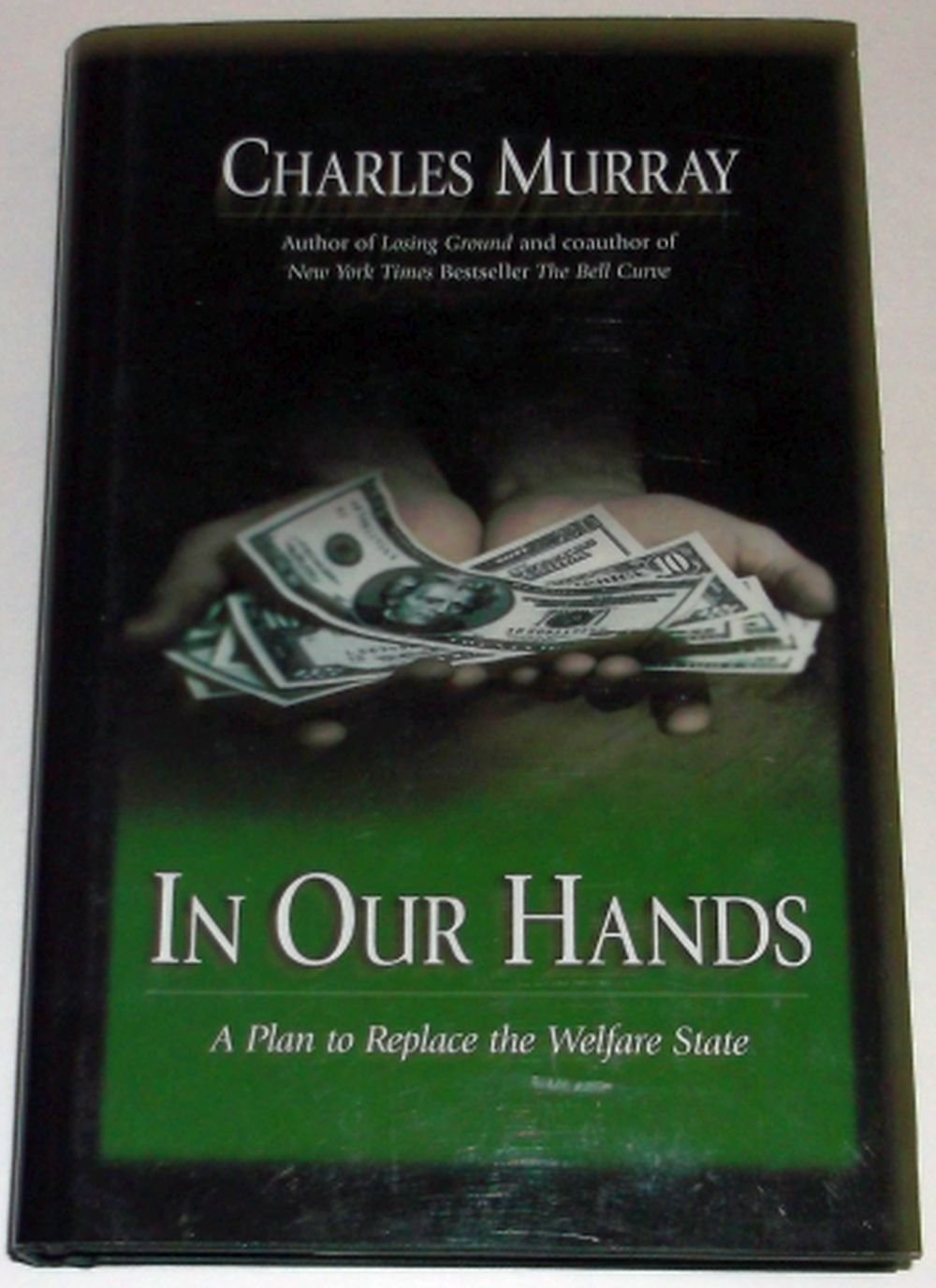http://www.amazon.com/books/dp/0844742236
goes into detail about how much a program of guaranteed income for everyone would cost in the United States, and suggests some probable effects that would have on everyone's everyday behavior. I read the book a year or two after it was published.
Murray's own summary of his argument
http://www.irp.wisc.edu/publications/focus/pdfs/foc242a.pdf
and reviews of his book
http://www.aei.org/article/society-and-culture/poverty/in-ou...
http://www.conallboyle.com/BasicIncomeNewEcon/MurrayReview.p...
http://www.richmondfed.org/publications/research/region_focu...
http://mises.org/misesreview_detail.aspx?control=296
may inform the discussion here. The policy proposal of a basic income guarantee is interesting because
a) no country has ever tried it, really, so there isn't a real-world experience case to look at yet,
and
b) a remarkable variety of people from otherwise differing points of view have proposed it over the years.
I'm still trying to make up my mind how the trade-offs of a policy like a basic guaranteed income nationwide would compare to the trade-offs of "targeted" social welfare programs for elderly, disabled, and poor.
a) no country has ever tried it, really, so there isn't a real-world experience case to look at yet,
and
b) a remarkable variety of people from otherwise differing points of view have proposed it over the years.
Charles Murray's book In Our Hands: A Plan to Replace the Welfare State,
http://www.amazon.com/books/dp/0844742236
goes into detail about how much a program of guaranteed income for everyone would cost in the United States, and suggests some probable effects that would have on everyone's everyday behavior. I read the book a year or two after it was published.
Murray's own summary of his argument
http://www.irp.wisc.edu/publications/focus/pdfs/foc242a.pdf
and reviews of his book
http://www.aei.org/article/society-and-culture/poverty/in-ou...
http://www.conallboyle.com/BasicIncomeNewEcon/MurrayReview.p...
http://www.richmondfed.org/publications/research/region_focu...
http://mises.org/misesreview_detail.aspx?control=296
may inform the discussion here. Big public policy proposals are not easy to discuss, but the big public policy proposal of a guaranteed basic income for all is a response to existing policy of supposedly targeted social welfare programs that are just about equally expensive in the benefits they provide, but much more costly to administer.
As a matter of personal opinion, I am still thinking about whether or not a basic income guarantee is a good idea, but I definitely want to figure out if spending no more in total for social welfare by directly transferring cash to all citizens would simplify administration of welfare programs and allow more individual choice about how to use the money.
http://www.amazon.com/books/dp/0844742236
in which Murray goes into detail about how much a program of guaranteed income for everyone would cost in the United States, and some probable effects that would have on everyone's everyday behavior. I read the book a year or two after it was published.
Murray's own summary of his argument
http://www.irp.wisc.edu/publications/focus/pdfs/foc242a.pdf
and reviews of his book
http://www.aei.org/article/society-and-culture/poverty/in-ou...
http://www.conallboyle.com/BasicIncomeNewEcon/MurrayReview.p...
http://www.richmondfed.org/publications/research/region_focu...
http://mises.org/misesreview_detail.aspx?control=296
may inform the discussion here. Big public policy proposals are not easy to discuss, but the big public policy proposal of a guaranteed basic income for all is a response to existing policy of supposedly targeted social welfare programs that are just about equally expensive, but more costly to administer.
http://www.amazon.com/Our-Hands-Replace-Welfare-State/dp/084...
Well, this book is actually about the idea of giving government payments (annual "welfare") to ALL Americans, and what that might involve. The author points out that the total cost of all transfer payments in the United States economy is coming closer and closer to providing basic subsistence to every American.
http://www.amazon.com/Our-Hands-Replace-Welfare-State/dp/084...


Murray's book goes into detail about how much a program of guaranteed income for everyone would cost in the United States, and suggests some probable effects that would have on everyone's everyday behavior. I read the book a year or two after it was published.
Murray's own summary of his argument[3] and reviews of his book[4] may inform the discussion here. Big public policy proposals are not easy to discuss, but the big public policy proposal of a guaranteed basic income for all is a response to existing policy of supposedly targeted social welfare programs that are just about equally expensive in the benefits they provide, but much more costly to administer.
As a matter of personal opinion, I am still thinking about whether or not a basic income guarantee is a good idea, but I definitely want to figure out if spending no more in total for social welfare by directly transferring cash to all citizens would simplify administration of welfare programs and allow more individual choice about how to use the money.
[1] https://news.ycombinator.com/item?id=6309882
[2] http://www.amazon.com/books/dp/0844742236
[3] http://www.irp.wisc.edu/publications/focus/pdfs/foc242a.pdf
[4] http://www.aei.org/article/society-and-culture/poverty/in-ou...
http://www.conallboyle.com/BasicIncomeNewEcon/MurrayReview.p...
http://www.richmondfed.org/publications/research/region_focu...
http://mises.org/misesreview_detail.aspx?control=296